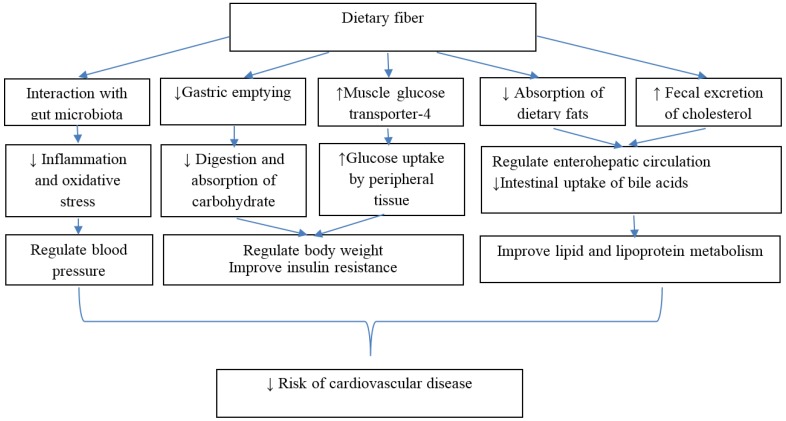Figure 2.
Mechanisms of protective effects of dietary fiber against development of cardiovascular disease. Dietary fiber improved insulin resistance by delaying gastric emptying, reduced absorption and digestion of carbohydrate and increased glucose uptake by peripheral tissue [34]. Dietary fiber also improved lipid and lipoprotein metabolism by decreased absorption of dietary fats, increased fecal excretion of cholesterol and decreased hepatic cholesterol synthesis; dietary fiber especially from cereal sources improved CVD health through multiple mechanisms including lipid reduction, body weight regulation, improved glucose metabolism, blood pressure control, and attenuation of oxidative stress and sub-clinical chronic inflammation [29]. Dietary fiber also modulated gut microbiota and modified cardiometabolic disorders [38,39,40].

